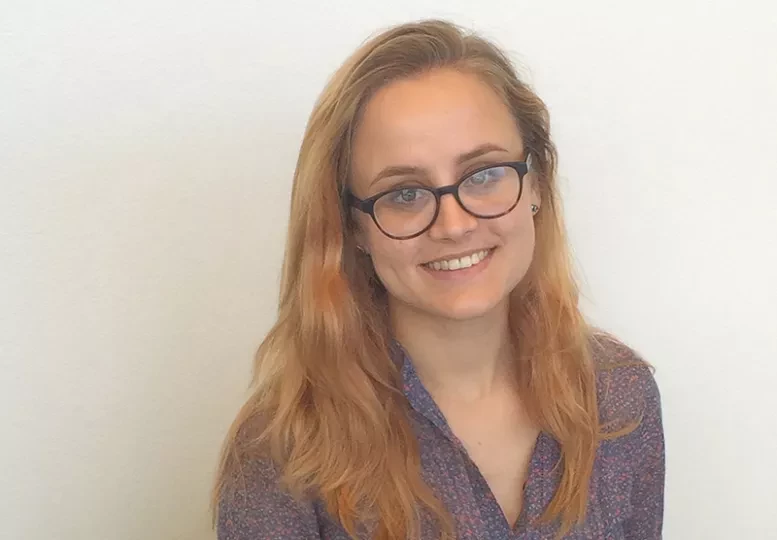Meet our summer intern

Published July 2, 2018
My name is Erin Burman, and I’m this year’s summer research intern at Face It TOGETHER through the CDC’s MCHC RISE-UP program! I grew up in Knoxville, TN, a college town a little bigger than Sioux Falls at the base of the Smoky Mountains.
Last month I graduated from Rhodes College in Memphis, TN with a bachelor's degree in biology. This fall I will begin a research-based Master of Health Science in Social Factors in Health program at the Johns Hopkins School of Public Health.
My path to research in public health has been somewhat of a winding road. As a kid, I was fascinated by living creatures and how they worked. I collected birds’ nests, snuck snails, beetles and toads into my room and performed plenty of “veterinary checkups” on my two ever-patient cats. This early interest easily translated into studying biology and health when I began college.
While at Rhodes, I researched hippopotamus behavior at the Memphis Zoo, published a research paper about plant disease in Puerto Rico and shadowed doctors at a children’s hospital. These experiences were all quite different, but in each of these cases, I found the biology of any one individual was quite insufficient to explain its overall wellness.
I began wondering about the social and ecological factors that inform the dynamics of health – and the health of people, especially. As I studied and worked in Memphis, I learned a long history of inequality, segregation and reform influences the health of the city’s residents. Memphis remains one of the most residentially segregated cities in the country, and residents of its richest, predominately white neighborhoods enjoy life expectancies about 13 years longer than those who live in the poorest, predominately black neighborhoods. What’s going on here?
When marginalized communities in the United States consistently face higher rates of diabetes, hypertension, asthma and infant mortality, biology alone is not to blame. Instead, social forces like income inequality and institutional racism interact with biology to create poor health outcomes and health disparities among social groups. This is the process I want to research in graduate school.
I am excited to apply my research interests to my work here at Face It TOGETHER. The disease of addiction is a real, biological condition that involves debilitating changes in brain function, but like any other disease, a person’s experience with it is influenced by his or her social environment.
FIT evaluates patient wellness and treatment progress using the Recovery Capital Index survey. The data collected through the RCI reveals important patterns about people’s experiences with the disease. I look forward to consulting RCI data and other FIT resources to learn about addiction in Sioux Falls. How does a person’s social and economic status affect his or her experience with addiction and its treatment? Are there health disparities in Sioux Falls when it comes to addiction outcomes, and what social statuses are these disparities based upon? How can we as a society better support and respect people with the disease of addiction, and how can we ensure we do so in a way that is fair and equitable to people from diverse backgrounds? I believe the power of data can help us begin to answer these questions.
I would like to thank everyone at Face It TOGETHER for hosting me this summer – I can’t wait to work with everyone!
